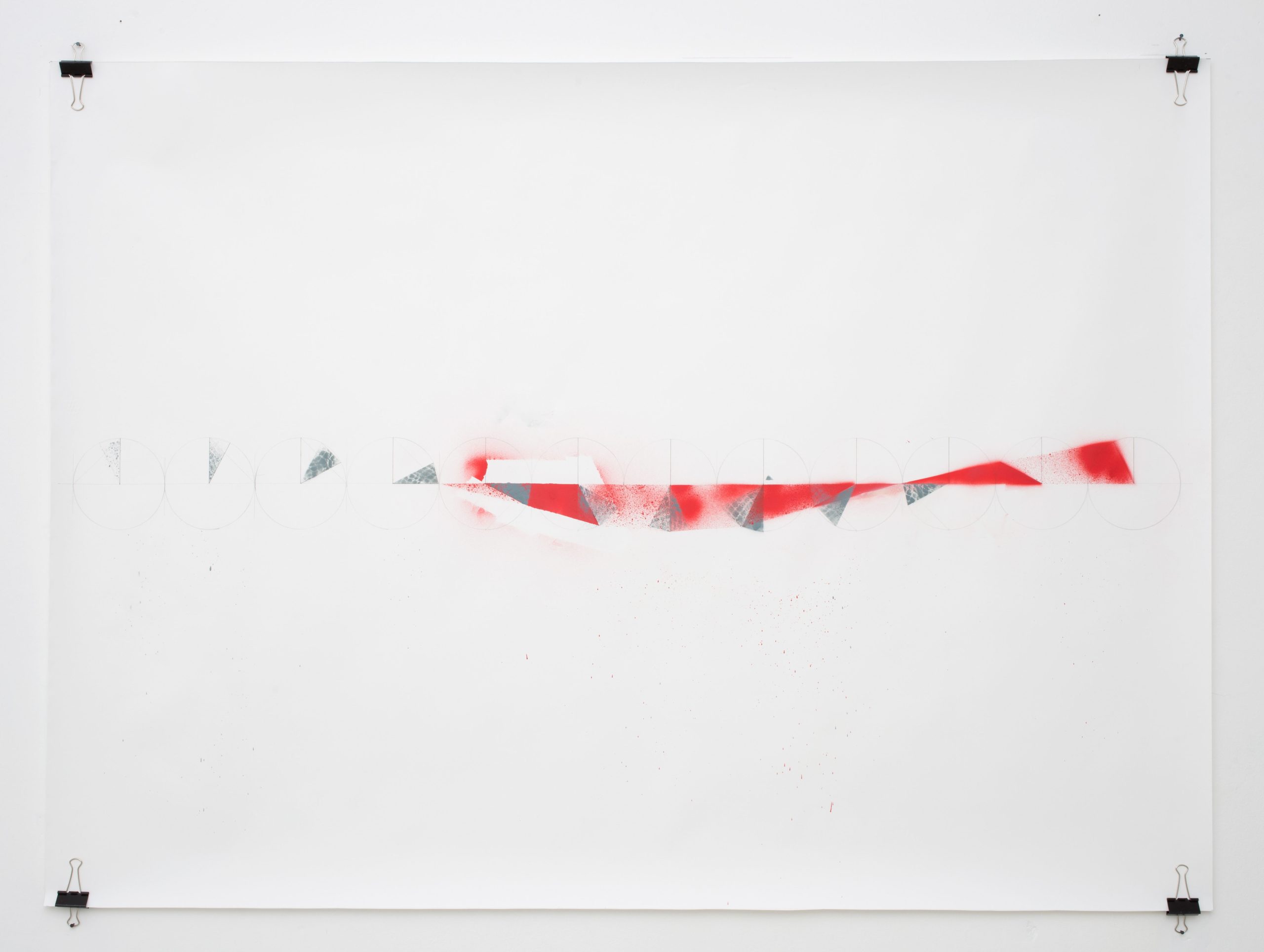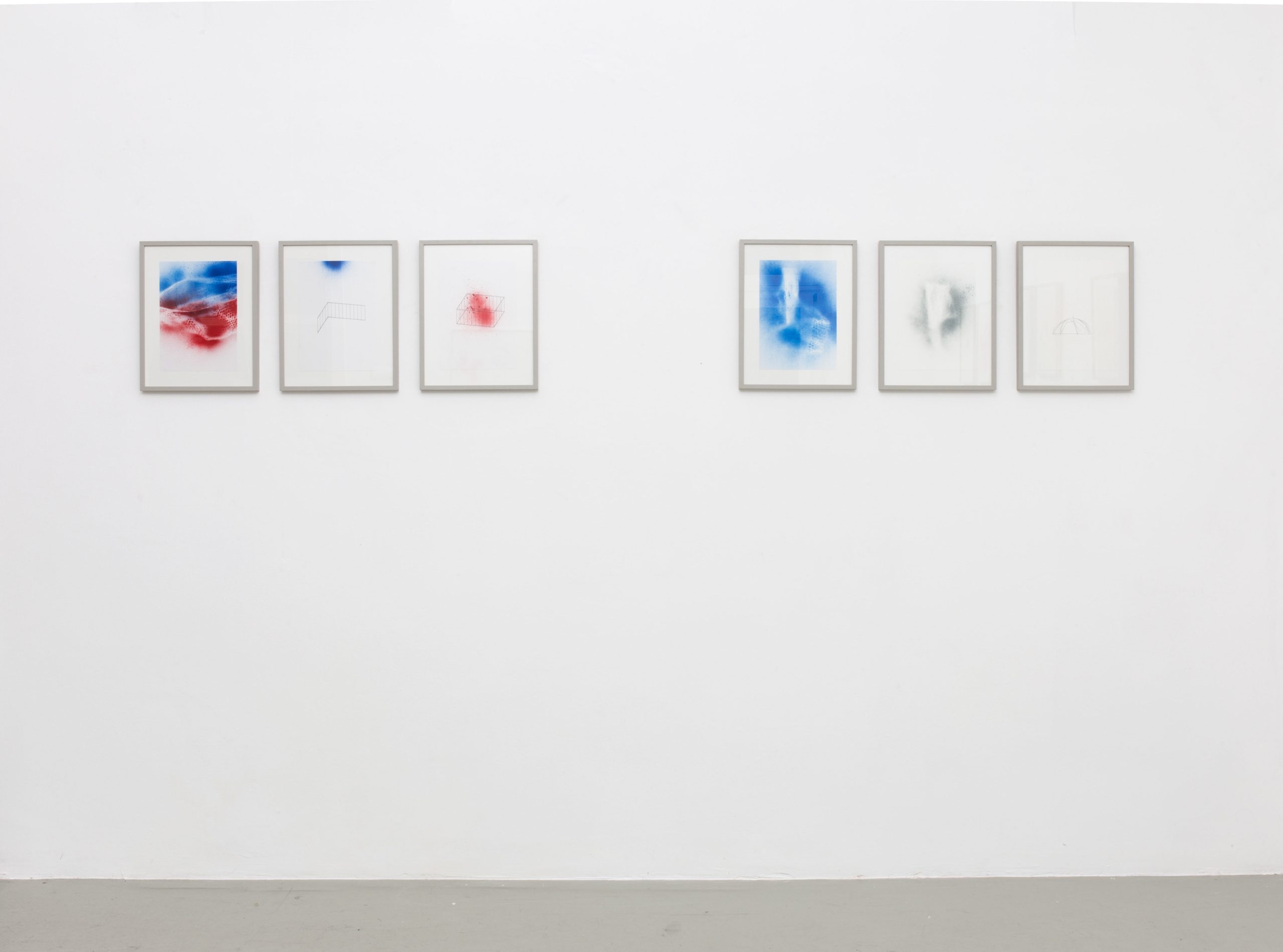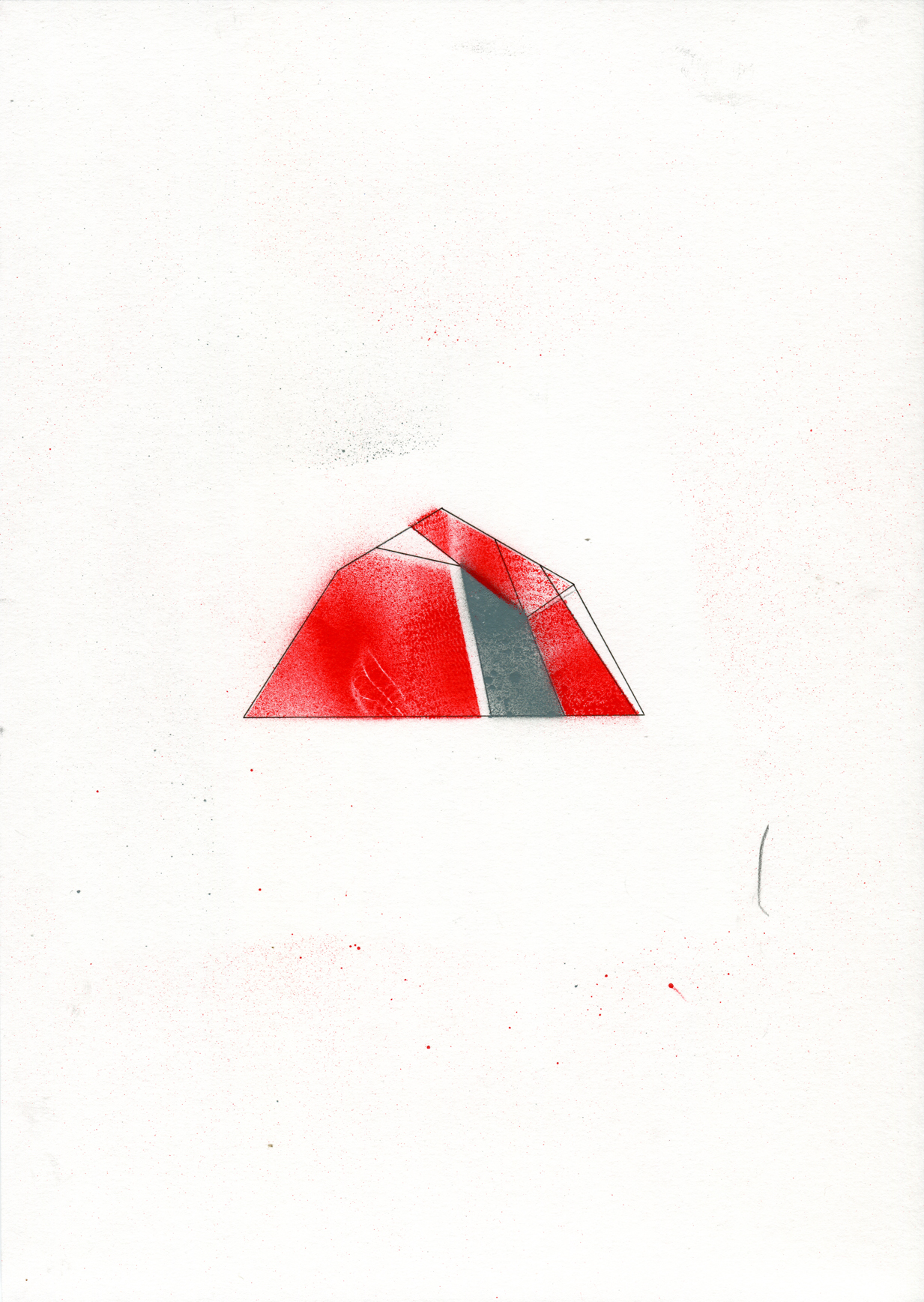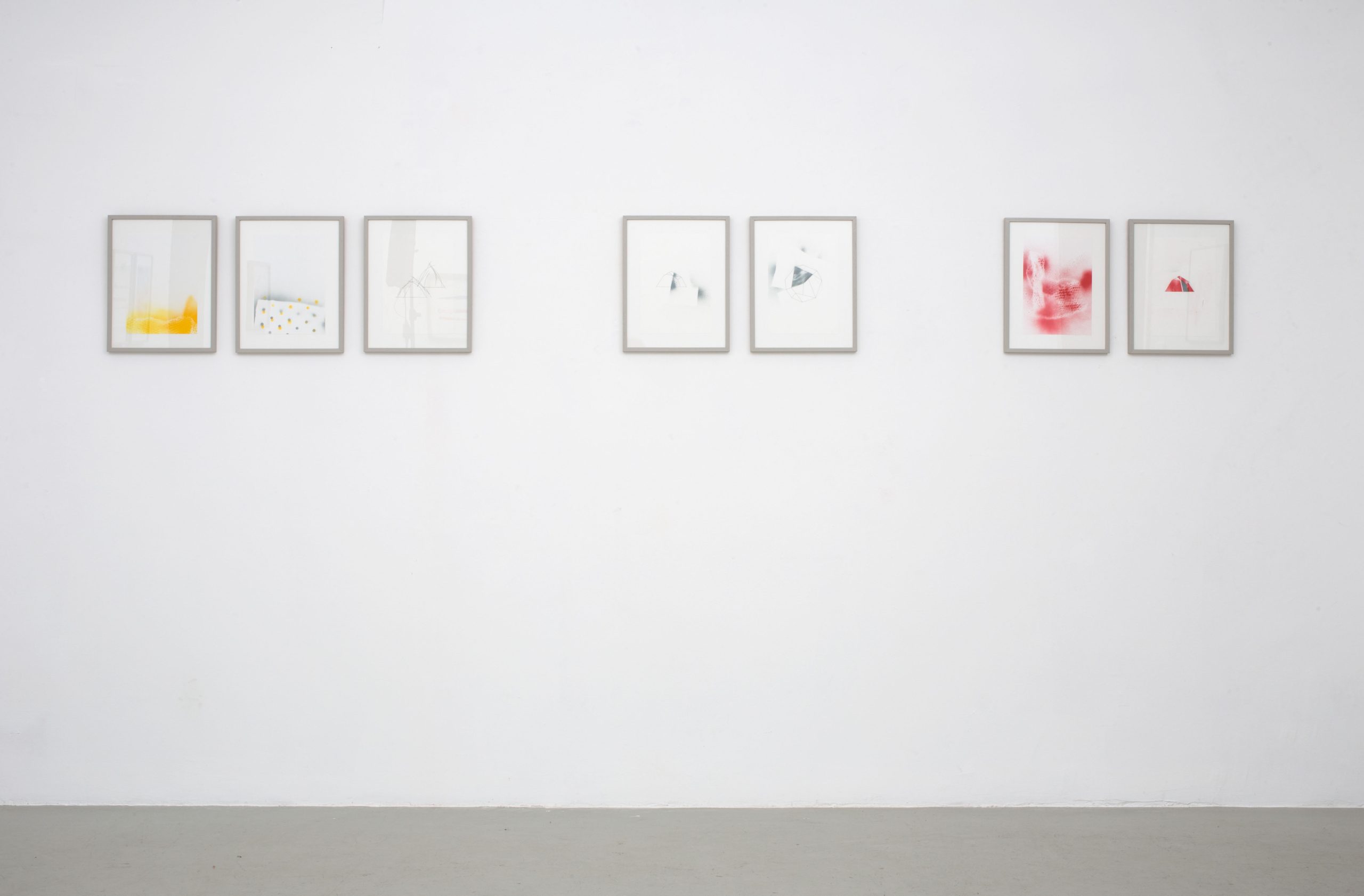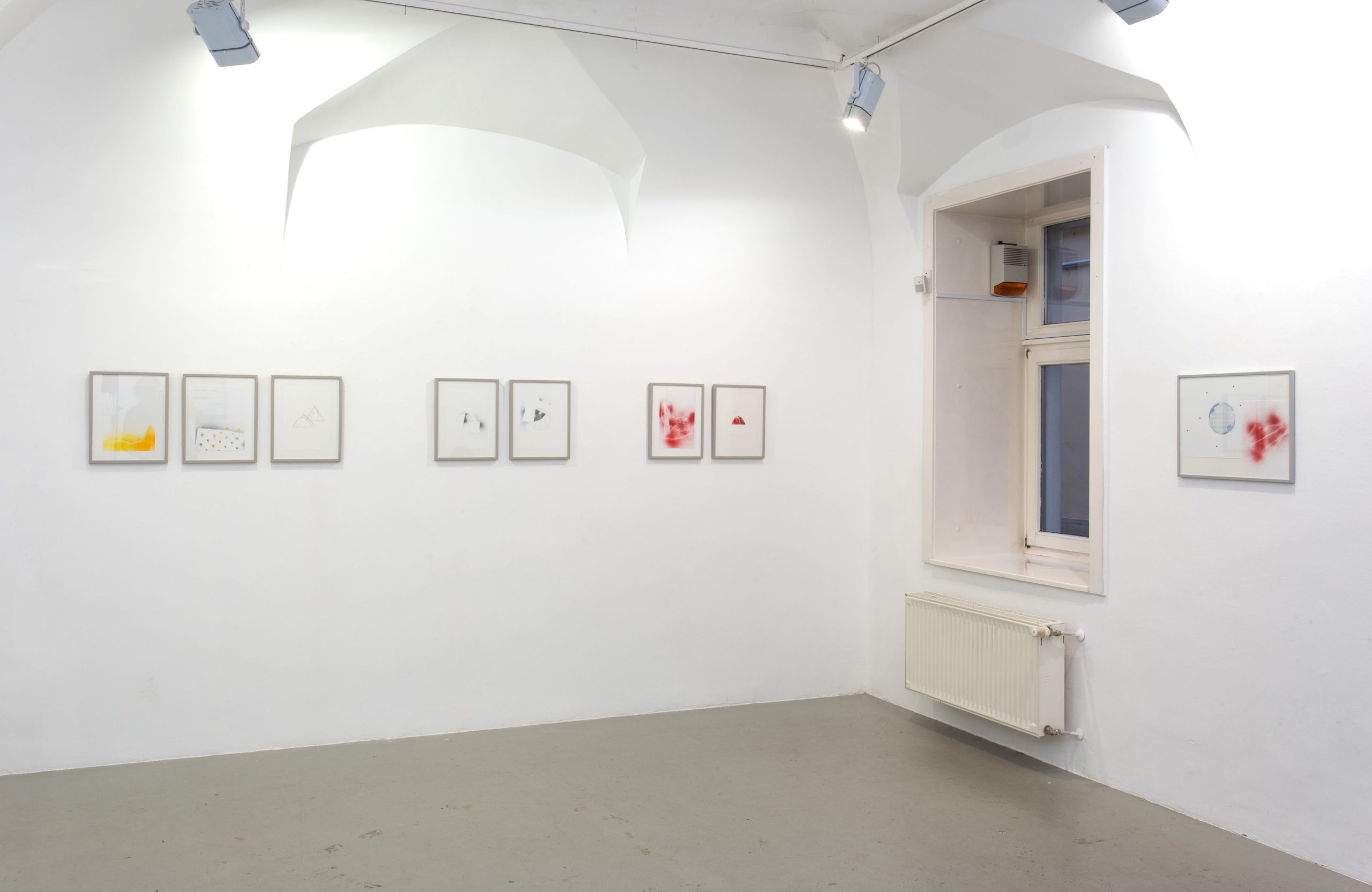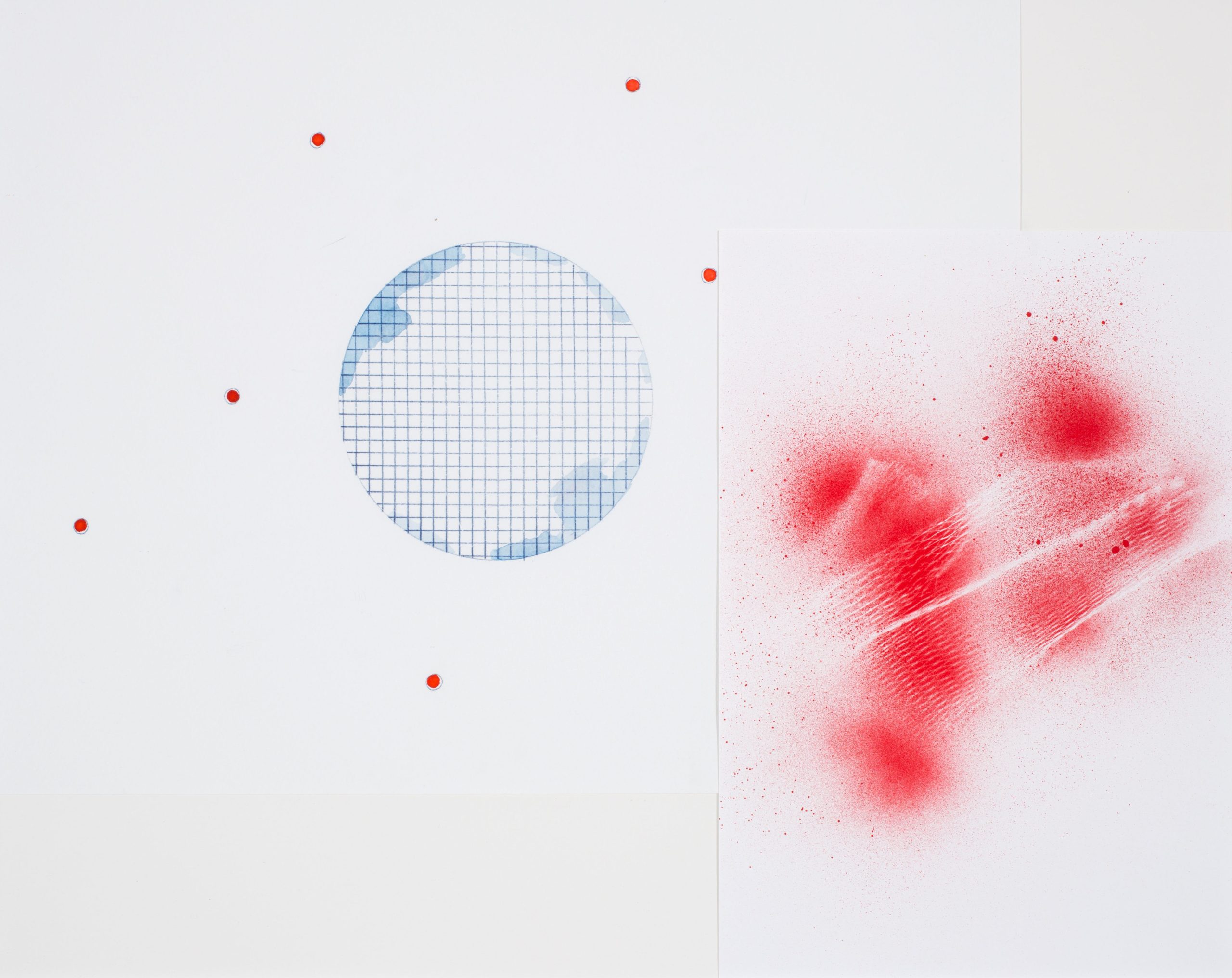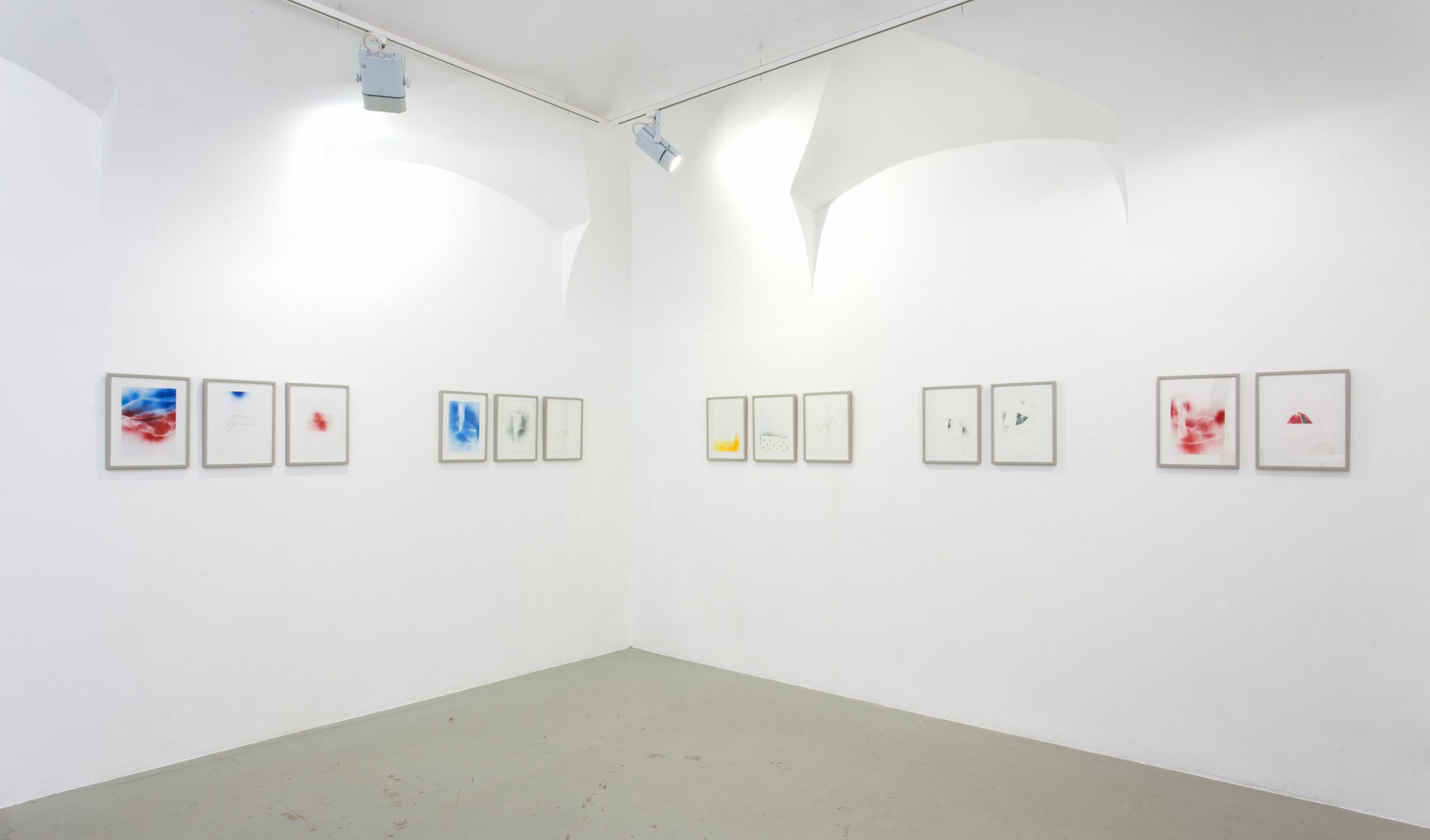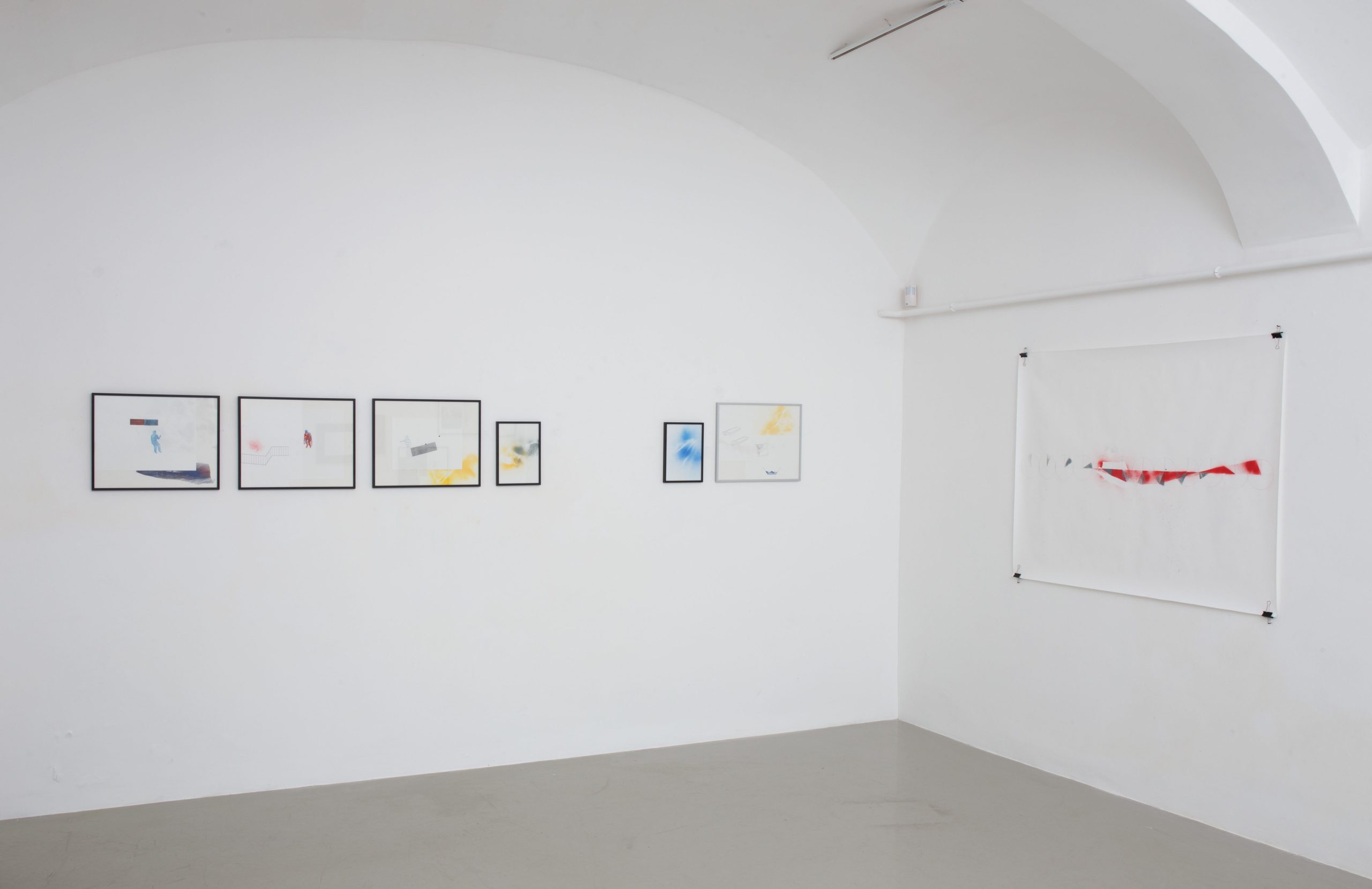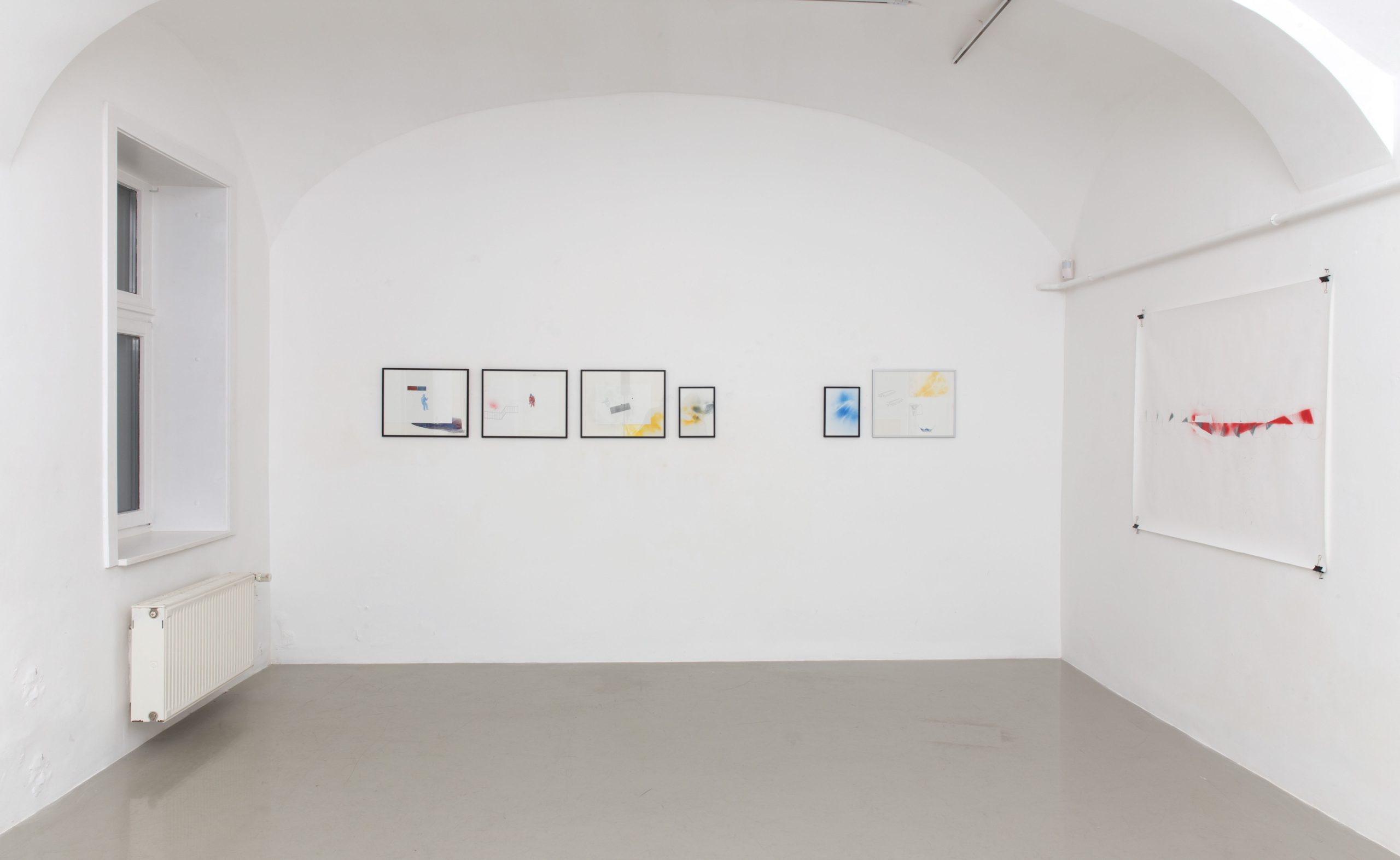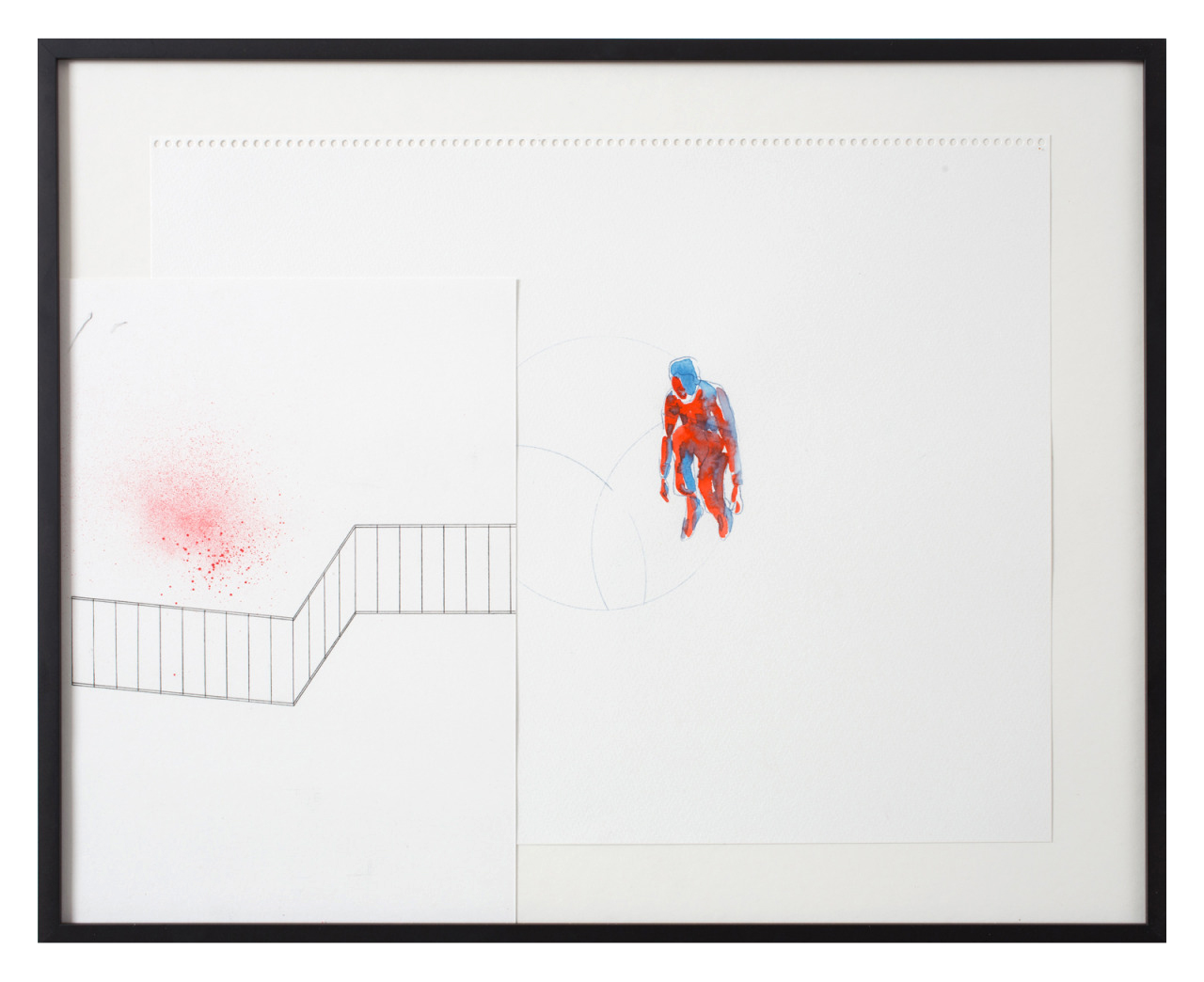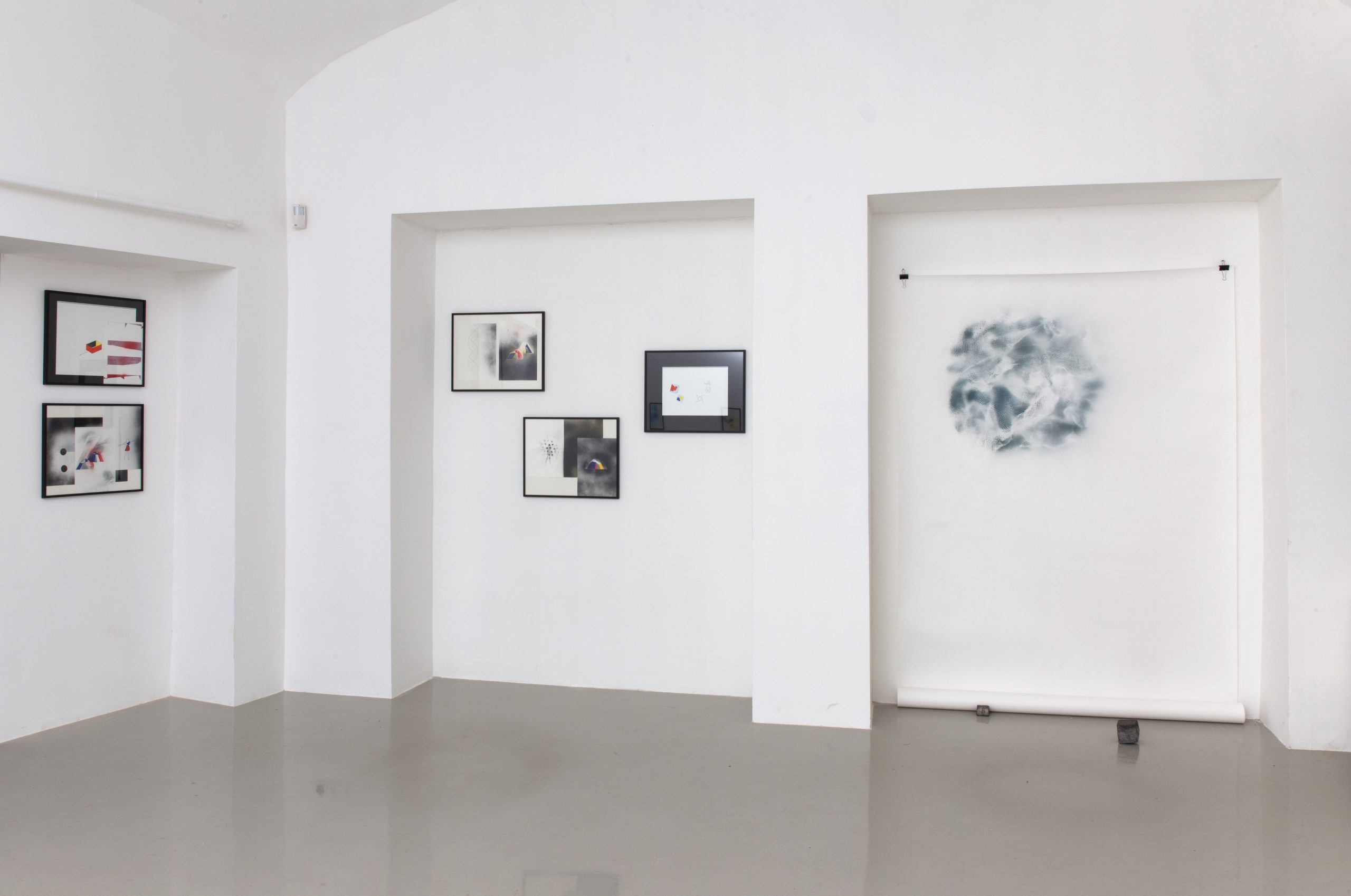The current exhibition in the Kisterem Gallery presents a selection of drawings from the latest series by Júlia Vécsei, titled Reality Exercises, produced during the last year or so. The drawings, which feature the artist’s customary purified forms and follow her signature compositional principles, are her reflections on the acutely topical issues and traumas of the migrant situation in Europe. This series marks a departure from Vécsei’s previous subjects, which were conspicuously devoid of a socially critical edge, for she now raises questions concerning the moral responsibility of the individual and of society, the axioms underpinning the Judaeo-Christian tradition in Europe, and the human rights of people who are driven to seek refuge from crisis. The dramatic emotionality in these questions posed is counterbalanced by the artist in the surfaces of her pictures, which grow increasingly colourful and are built up, within their individual frames, like a collage. The patches of translucent yellow, red and blue are interspersed, however, with attributes that recall ordinary leisure activities, but which have recently become associated with the international migration crisis, such as tents, fishing nets, and even the temporary waiting hangars of a no-frills airline, which illuminate the wretchedness of the European humanitarian emergency like a kind of visual Pavlov’s reflex. In every location – among the cordons that serve to encircle and/or separate, between the nets floating on the sea, or surrounding the tents – there are faceless human figures, “duplicated” in indigo, trying haplessly, like circus performers, to find their balance in the hesitantly balanced situations crafted by the artist. But who are these faceless people? What nation, religion and identity do they represent? And what kinds of situations are they attempting to counterbalance? Is their facelessness intended to substitute the artist, the viewer, or the victim of trauma? The drawings present a series of exercises in equilibrium. The physical postures are repeated across simple, pictogram-like illustrations, at times continuing ad infinitum, oruntil a status of stability is achieved. In the majority of cases, the questions Vécsei asks are what sort of personal and social responsibility one may feel during a crisis, and how one may recover from a loss of trust in one’s own country.
Mónika Zsikla
photography by: Miklós Sulyok
